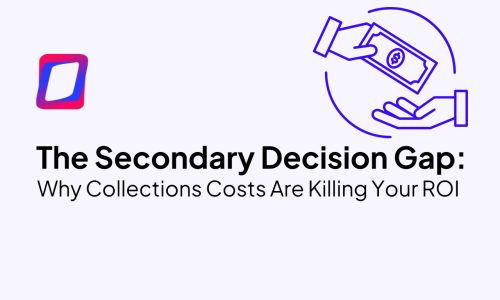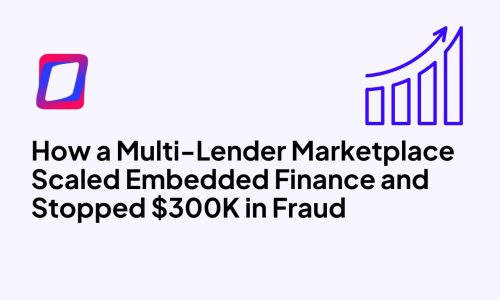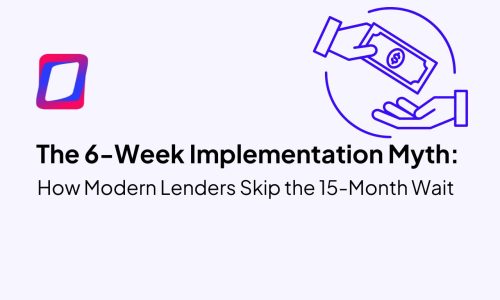How Fintech is Opening Doors for the Unbanked
Traditional decisioning models overlook newcomers, but GDS Link and Nova Credit ensure equal opportunity.
Access to credit can be a critical lifeline for immigrants building new lives in the U.S., but traditional credit scoring models often exclude those with a U.S. credit history. This creates significant barriers to essential financial services. Fortunately, advancements in Fintech and innovative credit decisioning are now paving the way for greater inclusivity and opportunity.
Three Myths About Financial Inclusion
To address financial challenges in underserved communities, the fintech industry is enhancing inclusion and access with innovative programs, including expanding credit profiles and introducing digital money management tools.
Despite these improvements, ongoing myths about the fintech industry are slowing progress:
- One misconception is that financial institutions lack interest in underserved consumers, whereas many banks and credit unions are eager to build relationships with these borrowers to foster long-term connections.
- Another myth suggests there is a shortage of trustworthy financial education, but in reality, banks and credit unions are partnering with nonprofits to enhance financial literacy and provide tailored resources.
- Some believe that underserved communities have limited opportunities to build credit, yet new credit scoring models and microfinancing solutions are now addressing these gaps.
The growing alignment between community organizations and financial institutions promises to improve financial literacy and inclusion. As more initiatives are implemented, they will help underserved populations establish a more secure financial foundation.
Industry Leaders Combating These Myths
NOW Money is making significant strides in enhancing financial services for underbanked migrant workers in the Middle East through new partnerships with Commercial Bank International (CBI) and Network International. By tapping into CBI’s robust banking infrastructure and Network International’s cutting-edge payment solutions, NOW Money is set to improve transaction speed, security, and the overall banking experience for its users. These strategic alliances mark a crucial step in advancing financial inclusion across the region, aligning with NOW Money’s mission to deliver comprehensive digital banking and payroll solutions to underserved communities. With an innovative approach to mobile banking, NOW Money has already processed over 10.9 million transactions and facilitated AED 2.8 billion in salaries, benefiting more than 511 responsible employers and countless workers.
Stori, the Mexican Fintech unicorn, has secured $212 million to enhance financial inclusion in Latin America, including $105 million in equity and $107 million in debt. This funding will help Stori expand its products and services, continuing its mission to provide accessible financial solutions to underserved populations. Notably, Stori’s credit card has a 99% approval rate and is recognized for its user-friendly interface and educational resources, contributing to its success as a pioneering company in Mexico’s financial sector.
CARE, a leading humanitarian organization fighting global poverty, has invested in the Ugandan fintech company Ensibuuko to enhance financial inclusion for women by expanding digital access and financial services. The partnership includes transferring CARE’s Chomoka app to Ensibuuko, which will leverage it to support its network of 7,500 savings groups in Uganda and Malawi. In 2022, Ensibuuko obtained a microfinance banking license in Uganda and now provides digital loans and payment services to savings groups and their members.
Equitable Credit Assessment: Bridging the Gap
For many immigrants, proving their creditworthiness through traditional methods poses a significant challenge. Traditional credit scoring systems often overlook important aspects of a person’s financial behavior, particularly for those new to the U.S. This is where innovative credit assessment methods come into play, offering a more comprehensive evaluation.
Leading the way, companies like GDS Link are utilizing over 200 data sources to give lenders a fuller picture of potential borrowers. By incorporating alternative data points—such as rental payments, utility bills, and international credit history—these platforms offer a more accurate and nuanced understanding of an individual’s financial behavior.
Another key player in this movement is Nova Credit, which integrates international credit data into U.S. credit assessments. Their platform translates foreign credit histories into a format that U.S. lenders can easily understand. This integration not only facilitates smoother financial transitions for immigrants but also promotes fairness and inclusivity within the financial system.
Breaking Barriers, Building Futures
In conclusion, the synergy between advanced credit decisioning technologies and inclusive practices is reshaping the financial services industry. Through initiatives spearheaded by companies like GDS Link and Nova Credit, immigrants are gaining access to the credit they deserve based on a comprehensive view of their financial capabilities. This isn’t just about numbers—it’s about empowering individuals, fostering economic growth, and enriching communities.
Curious about the future of credit and financial inclusion? Don’t miss the Lending Link Podcast episode featuring Misha Esipov, CEO of Nova Credit. In this insightful conversation, Misha discusses how Nova Credit transforms credit data and creating a more inclusive financial system for millions. Discover how their innovative solutions are bridging gaps in traditional credit analytics and learn about their impactful partnerships with major industry players.
CEO of Nova Credit Talks Financial Inclusion and the Future of Credit Data
Tune in now to gain valuable insights and stay ahead in the evolving world of credit and data decisioning!
Watch The Episode on YouTube
Stay informed and inspired—subscribe to The Lending Link Podcast today for more episodes like this!
Recent articles

The Secondary Decision Gap: Why Collections Costs Are Killing Your ROI
Read article
How a Multi-Lender Marketplace Scaled Embedded Finance and Stopped $300K in Fraud
Read article





